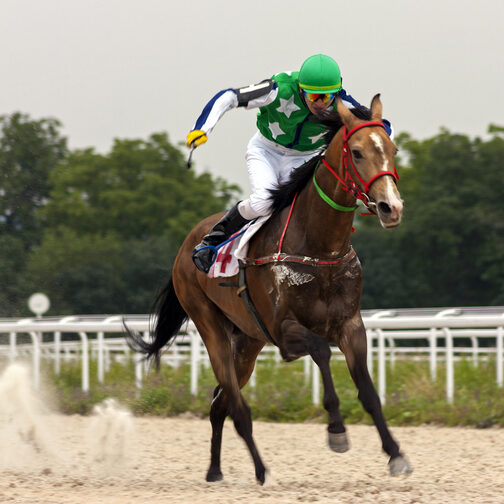Insights < BACK TO ALL INSIGHTS
A Comeback Victory: Appeals Court Says Monmouth Park Owner is Entitled to Recover Damages from NCAA and Sports Leagues
A Comeback Victory: Appeals Court Says Monmouth Park Owner is Entitled to Recover Damages from NCAA and Sports Leagues
By: Ifrah Law
It has been over a year since the Supreme Court found that the Professional and Amateur Sports Protection Act (PASPA) was unconstitutional in Murphy v. NCAA, and countless states have legalized sports gambling in the time since, but the legal fallout from the Murphy case is still weaving its way from the courts.
Early in the Murphy case, when the sports leagues and NCAA requested and successfully obtained a preliminary injunction and temporary restraining order (TRO) against the state of New Jersey and businesses seeking to operate sports wagering, preventing them from operating sports wagering in the state until that case was resolved.
One of the businesses seeking to operate in New Jersey was the New Jersey Thoroughbred Horsemen’s Association (NJTHA), which owns Monmouth Park where—now that PASPA has been ruled unconstitutional—a sportsbook owned by William Hill now operates. In addition to opposing the injunction and TRO, the NJTHA successfully obtained an order from the trial court requiring the NCAA and sports leagues to post a bond of $3.4 million under a procedural rule (Federal Rule of Civil Procedure 65(c)). The purpose of the bond was to provide for damages in the event the injunction and TRO were found to be “wrongfully” entered.
After the Supreme Court found in favor of New Jersey, NJTHA, and the other businesses last year in Murphy, the NJTHA returned to the district court and filed a motion seeking to recover not just the $3.4 million bond, but also $150 million in revenue it claimed to have lost during the four years that the Murphy case was pending, based on the inability to offer sports wagering throughout that time.
The district court denied the NJTHA’s motion last November, and to those on the outside, the case appeared a sure loss, with the NJTHA likely to not be entitled to any lost revenue. However, the NJTHA appealed to the Third Circuit Court of Appeals, and today, the Third Circuit ruled that the NJTHA was, in fact, entitled to recover “provable damages” up to the $3.4 million bond amount. So, although the case will be sent back to the trial court for a determination as to whether the NJTHA is entitled to the full $3.4 million or some lesser amount, because the appeals court noted in a footnote that the NCAA and leagues “did not contest” the bond amount previous (instead simply arguing that no bond was appropriate), it appears likely that the NJTHA will be able to recover the full $3.4 million amount.
Thus, to borrow a horse-racing metaphor in honor of the NJTHA, its chances at a win started out as a longshot and broke slowly out of the gate, but the end result is shaping up to be a $3.4 million come-from-behind trip to the winner’s circle. And from the Third Circuit’s perspective, the result was not even a photo finish, as the court held that “PASPA provided the only basis for enjoining NJTHA from conducting sports gambling, and the Supreme Court ultimately held that that law is unconstitutional. Therefore, NJTHA had a right to conduct sports gambling all along,” rendering the TRO and injunction inappropriate, and entitling the NJTHA to damages.
More importantly, the Third Circuit’s ruling might stand as a warning to other opponents of gaming operators who seek to operate legally as they—like the NCAA and sports leagues learned today—could be required to pay damages if they obtain an injunction or restraining order that is later found to be wrongful.
To view the decision Click Here





